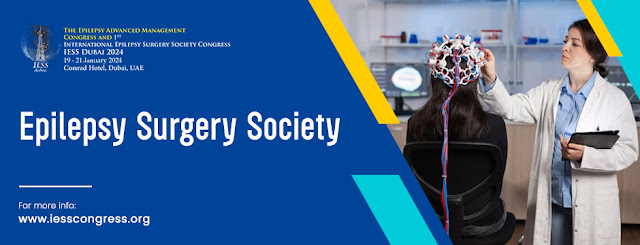Surgical Solutions for Seizure Control: Insights from the International Epilepsy Surgery Meeting
Recurrent seizures are a characteristic of epilepsy, a neurological illness that affects millions of individuals globally. While medication is the primary treatment for epilepsy, surgery can offer hope for those whose seizures are resistant to medication. The International Epilepsy Surgery Meeting serves as a platform for experts from around the globe to share insights, advancements, and innovations in surgical solutions for seizure control. Through this particular blog, you will be able to explore key highlights and takeaways from this prestigious event.
Advancements in Surgical Techniques
One of the focal points of the International Epilepsy Surgery Summit is the discussion of advancements in surgical techniques for epilepsy treatment. Over the years, there have been significant developments in surgical approaches, including resective surgery, laser ablation, and neuromodulation techniques such as vagus nerve stimulation (VNS) and deep brain stimulation (DBS). Experts at the summit share insights into the latest techniques, their efficacy, and their applicability to different types of epilepsy and patient populations.
Personalized Treatment Approaches
Epilepsy is a complex disorder with diverse underlying causes and manifestations. Personalized treatment approaches are essential for optimizing outcomes and minimizing risks in epilepsy surgery. At the summit, clinicians and researchers delve into the importance of tailoring surgical interventions to individual patients based on factors such as seizure type, location, and severity, as well as neuroimaging findings and electroencephalogram (EEG) data. By taking a personalized approach, surgeons can maximize the likelihood of seizure control while minimizing potential adverse effects.
Multidisciplinary Collaboration
Successful epilepsy surgery requires collaboration among various medical specialties, including neurology, neurosurgery, neuroradiology, and neuropsychology. The International Epilepsy Surgery Meeting emphasizes the importance of multidisciplinary collaboration in patient evaluation, surgical planning, and postoperative care. Experts discuss the role of each specialty in the epilepsy surgery team and share strategies for effective communication and coordination to ensure optimal patient outcomes.
Innovations in Imaging and Monitoring
Advancements in neuroimaging and electrophysiological monitoring play a crucial role in epilepsy surgery planning and execution. The summit showcases innovations in imaging modalities such as functional magnetic resonance imaging (fMRI), positron emission tomography (PET), and magnetoencephalography (MEG), which provide valuable insights into the localization of epileptic foci and critical brain structures. Additionally, experts discuss the latest developments in intraoperative neurophysiological monitoring techniques, including electrocorticography (ECoG) and intraoperative MRI (iMRI), to enhance surgical precision and safety.
Outcomes and Quality of Life
Ultimately, the goal of epilepsy surgery is to achieve seizure freedom or a significant reduction in seizure frequency while preserving or improving the patient's quality of life. The International Epilepsy Surgery Summit provides a forum for discussing long-term outcomes of surgical interventions, including seizure control rates, medication reduction, cognitive outcomes, and psychosocial functioning. Experts share data on prognostic factors that influence surgical outcomes and explore strategies for optimizing postoperative care and rehabilitation to enhance patients' overall well-being.
Challenges and Future Directions
Despite the advancements in epilepsy surgery, significant challenges remain, including identifying suitable candidates for surgery, addressing comorbidities, and minimizing surgical risks. The summit provides discussions on these challenges and explores potential solutions, such as improved patient selection criteria, refinement of surgical techniques, and the development of novel therapies. Moreover, experts outline future directions in epilepsy surgery research, including the exploration of minimally invasive approaches, the use of advanced neurostimulation techniques, and the integration of precision medicine concepts.
Bottom Line
The International Epilepsy Surgery Meeting catalyzes advancing the field of epilepsy surgery, bringing together experts from diverse disciplines to share knowledge, exchange ideas, and collaborate on innovative solutions for seizure control. Through discussions on advancements in surgical techniques, personalized treatment approaches, multidisciplinary collaboration, innovations in imaging and monitoring, outcomes and quality of life, and challenges and future directions, the summit provides valuable insights that contribute to improving outcomes and quality of life for individuals living with epilepsy. As research continues to evolve and technologies continue to advance, the future holds promise for further improving surgical solutions for seizure control and transforming the lives of epilepsy patients around the world. For further information about this meeting, please visit our website iesscongress today!

Comments
Post a Comment